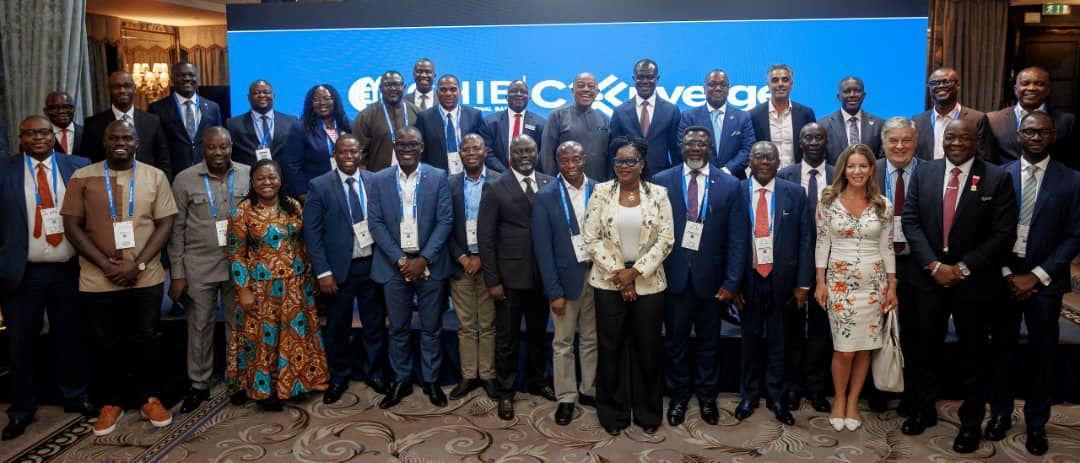Africa-Press – Ghana. The Bank of Ghana (BoG) has supported plans to expand domestic gold refining and value addition. This formed part of a strategy to strengthen the country’s position in the global bullion trade and capture a greater share of export revenues.
Dr. Zakari Mumuni, the First Deputy Governor of the Bank, said this at theGhana International Bank (GHIB), CONVERGE Conference in London on the theme “Rethinking Commodity Finance for Growth.”
The CONVERGE Conference, convened by GHIB, brought together leaders from banking, trade finance, commodity trading, and policymaking to explore ways Africa can move beyond raw commodity exports.
Sessions at this year’s event examined opportunities to leverage technology, unlock innovative financing models, and build a more integrated and competitive trade ecosystem.
He said interest from international and domestic investors in establishing gold refineries in Ghana presented a “very good prospect” for deepening the commodity value chain, creating jobs, and improving the country’s trade balance.
Dr. Mumuni noted that Ghana had historically exported most of its mined gold in raw form, despite being Africa’s leading producer and one of the top 10 globally.
He said in 2019, gold accounted for nearly 56 percent of total export earnings, yet the country added nothing to its official gold reserves that year.
“This is another avenue where financing, given the place of Ghana in the mine of gold, can support the establishment of refineries and other value chain infrastructure,” he said.
“Such investments would enable the country to retain more value from its natural resources rather than exporting it almost entirely unprocessed,” he added.
He also pointed to opportunities in gold identification, storage, and trade facilitation, stressing that a coordinated effort between the public and private sectors could unlock significant economic benefits.
Dr. Mumuni’s remarks followed the central bank’s recent initiatives in gold-backed policy instruments, including the Domestic Gold Purchase Programme (DGPP) and the Gold-for-Oil (G4O) scheme.
Since launching the DGPP in June 2021, BoG has increased its bullion holdings from 8.7 tonnes to 33 tonnes, exceeding its original five-year reserve-doubling target well ahead of schedule.
Officials argue that refining capacity within Ghana would not only increase export value but also support the bank’s reserve accumulation strategy, facilitate collateralised financing, and improve the integrity of the gold supply chain through local verification and certification.
The proposed expansion of refining capacity aligns with a wider policy objective of moving Ghana up the value chain in commodities, a goal often discussed in relation to cocoa but increasingly relevant to gold, which remains the country’s most significant export.
Analysts said the move could help Ghana capture additional margins from processing, reduce logistical costs associated with exporting raw gold, and position the country as a refining hub for the West African subregion.
However, they caution that building a competitive refining industry will require not only capital investment but also consistent regulatory standards and environmental safeguards.
With global demand for traceable, responsibly sourced gold on the rise, expanding domestic refining could also enhance Ghana’s reputation as a compliant and credible source of bullion, a factor that could attract more foreign investment into both mining and downstream processing.
For More News And Analysis About Ghana Follow Africa-Press







